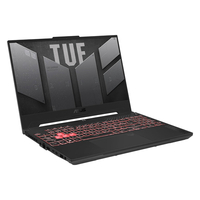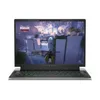As a PC gamer I’ve been taking AI for granted for way too long — that stops now
DLSS, I love you
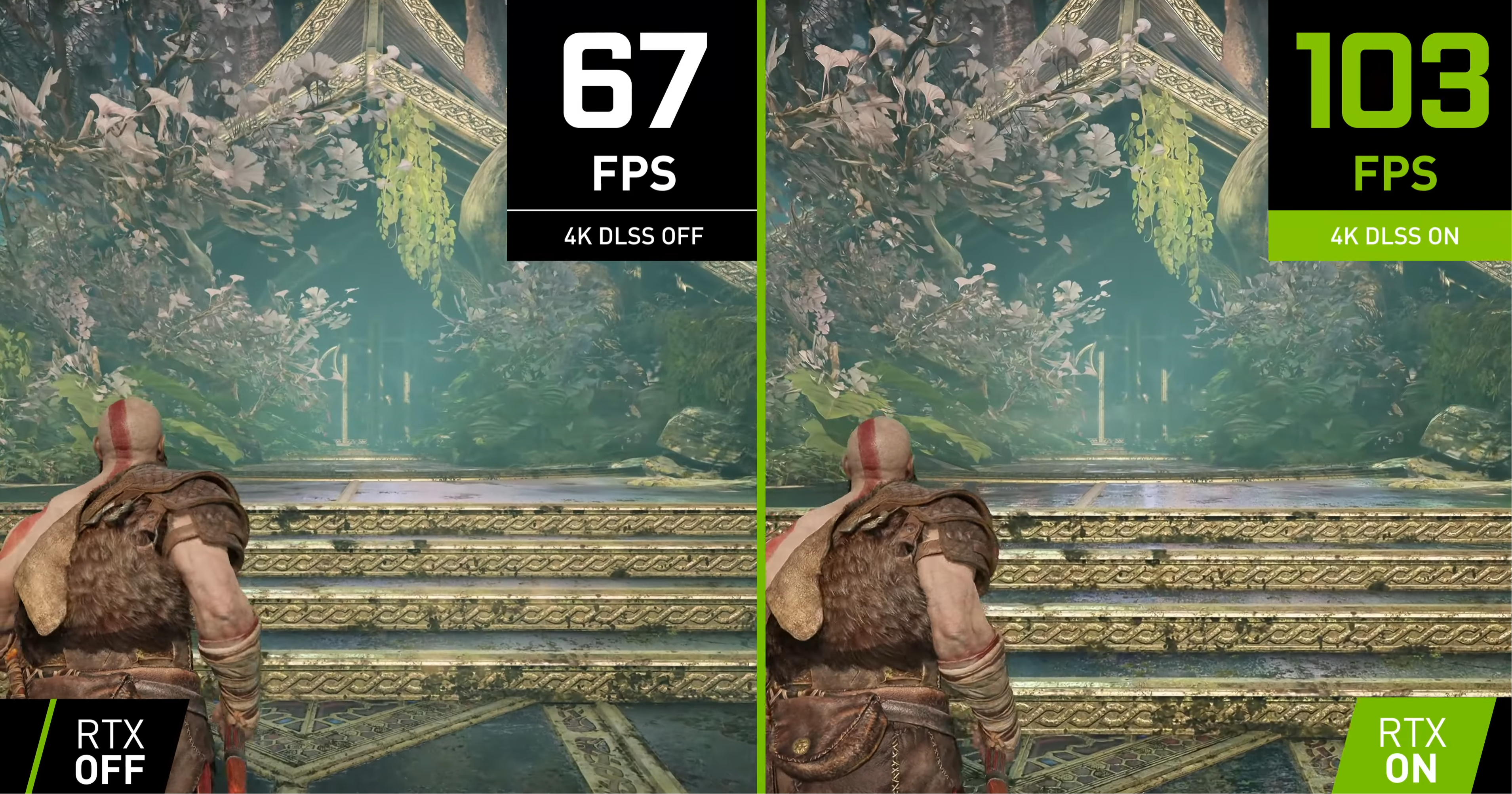
Full disclosure: I’m not really an AI guy. Well, at least that’s what I thought up until recently. Compared to our resident artificial intelligence guru Ryan Morrison — whose knowledge on the subject is so vast, he literally just appeared on one of the biggest U.K. morning shows earlier this week — I’m an amateur on the subject. Heck, I’ve never even used ChatGPT before.
That said, it turns out I have been using a form of AI for years that has made my main passion in life considerably better.
Said passion is video games. Specifically, the best PC games. I’ve been writing about games professionally since 2006, and over that time, I’ve come to realize the feature that has brought me the most joy is Nvidia DLSS.
Asus TUF Gaming A15 (2023): was $1,699 now $1,289 @ Amazon
ACT FAST! This 15.6-inch gaming laptop from Asus is currently 28% off in an enticing limited time deal over at Amazon, which equates to a lovely $410 saving. With an RTX 4070, AMD Ryzen 7-7940HS CPU and 16GB of DDR5 RAM, the A15 will run most modern games smoothly, especially if you enable DLSS in titles that support Nvidia's AI-driven supersampling technique.
First rolled out to select Team Green GPUs back in February 2019, DLSS is a form of deep-learning upscaling that, thanks to the power of AI, can massively boost frame rates for owners of select Nvidia graphics cards.
Since then, AMD and Intel have both introduced their own versions of AI-driven supersampling in the forms of FSR and XeSS, respectively. While both have improved substantially over the years, Nvidia is still the undisputed overlord in this area.
DLSS has continued to make significant strides forward, with arguably the biggest advancement coming in the form of AI frame generation, which was initially released in late 2022 as the headline feature of DLSS 3.
Gen-on-gen improvements
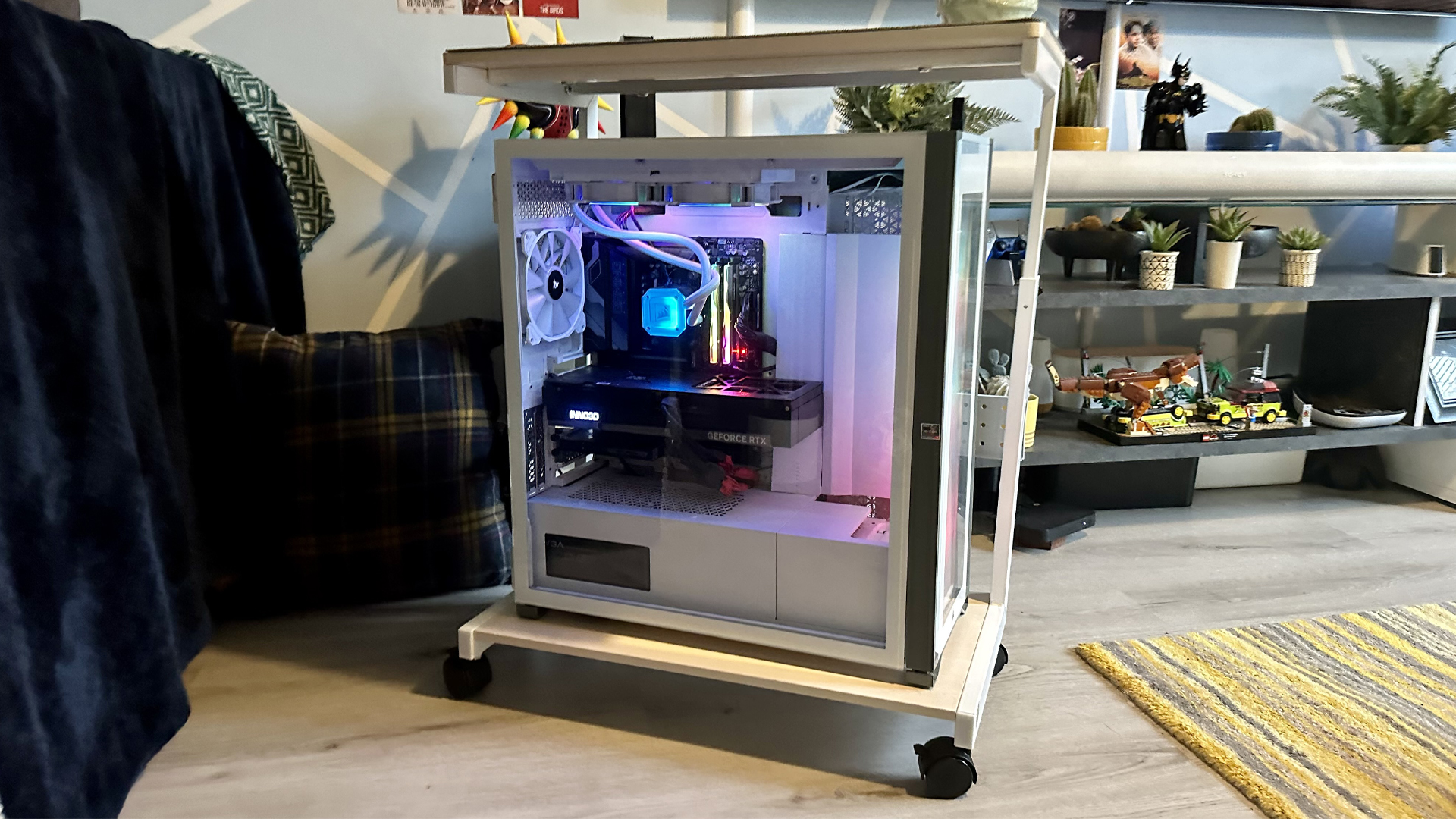
Since then, frame gen has kept improving. Now that Nvidia has released DLSS 3.5, even the most graphically intensive games (like Cyberpunk 2077: Phantom Liberty) can see frame rates double if you enable the AI feature.
From a consumer standpoint, this is great news, as AI now allows you to play an increasingly large number of titles at previously unheard of frame rates without the need to cripple your bank balance by going out and buying a top of the line RTX 4090 GPU.
For context — and depending on the third-party manufacturer — this is a card that still retails between $1,600 and $2,300 almost two years after launching. So yeah, we’re not talking PS5 Slim money here, with the disc version of Sony’s slightly svelter console retailing for around $495.
Frame game
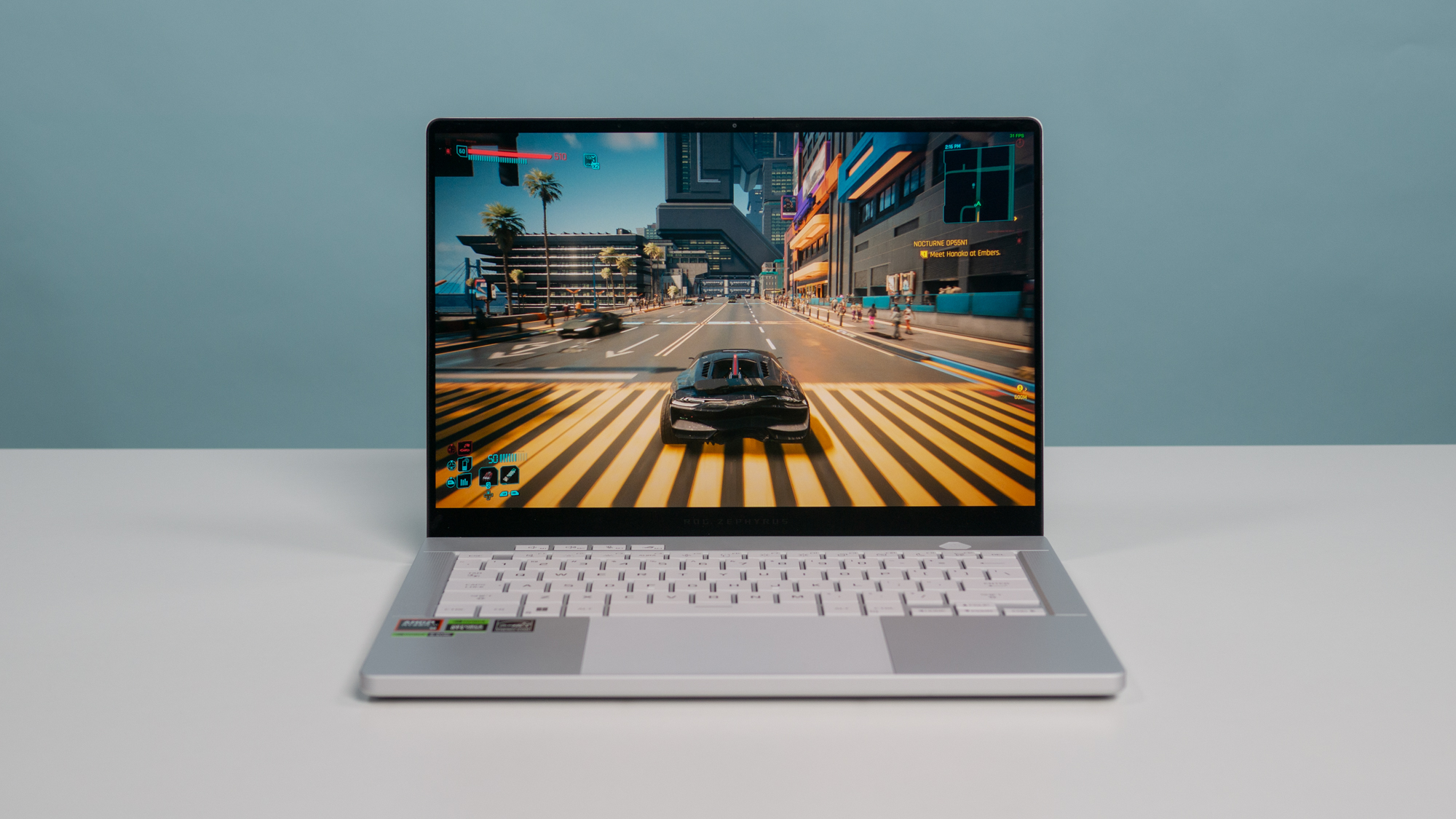
Experiencing frame rates on gaming laptops that can comfortably ease past the current-gen consoles no longer requires a finance-crippling investment, and it’s not uncommon to see RTX 4060 laptops (that also support DLSS) regularly go on sale for less than $1,000.
And my revised appreciation for AI gaming features doesn’t just extend to Nvidia. Intel XeSS is capable of producing excellent results now, to the point where, like DLSS, it’s difficult to spot a significant difference in image quality when running a game at your PC/gaming laptop’s native resolution compared to the AI-assisted alternative.
While AMD “Fidelity FX” — to give the upscaling tech its full moniker — is still the weakest of the big three, the Red Team deserves credit for making fairly significant advancements this year. FSR 3.1 was recently released, and image quality in motion has improved a good deal over FSR 2, with AMD promising up to 40 PC titles will support the latest upsampling technique before the end of the year.
To give AMD further credit, it’s even released its game-changing FSR 3.1 upgrade on Steam Deck; with a small handful of Nixxes’ PlayStation ports now running drastically better if you enable FSR 3.1 frame gen on what I consider to be the best handheld PC on the market.
Console gamers will hopefully start feeling the full benefit of image upscaling before too long as well. Rumors persist that Nintendo Switch 2 (or whatever The Big N ends up calling its next console) could take advantage of DLSS, which makes sense considering the current handheld hybrid uses an Nvidia APU. Meanwhile, speculation continues to swirl that Sony will introduce its own form of supersampling called “PSSR” with the as yet unannounced PS5 Pro, which could launch before the end of the year.
I may not know my Llama 3.1 models from Claude AI, but when it comes to DLSS and its competitors, I’m all over it. Artificial intelligence, I salute you. Just please don’t take my job.
More from Tom's Guide
- Look out, Nvidia — Microsoft reportedly working on its own DLSS rival
- Pro gamers beware — AI is coming for your job
- Asus ROG Ally X vs Steam Deck OLED: Which gaming handheld wins?
Sign up to get the BEST of Tom's Guide direct to your inbox.
Get instant access to breaking news, the hottest reviews, great deals and helpful tips.

Dave is a computing editor at Tom’s Guide and covers everything from cutting edge laptops to ultrawide monitors. When he’s not worrying about dead pixels, Dave enjoys regularly rebuilding his PC for absolutely no reason at all. In a previous life, he worked as a video game journalist for 15 years, with bylines across GamesRadar+, PC Gamer and TechRadar. Despite owning a graphics card that costs roughly the same as your average used car, he still enjoys gaming on the go and is regularly glued to his Switch. Away from tech, most of Dave’s time is taken up by walking his husky, buying new TVs at an embarrassing rate and obsessing over his beloved Arsenal.
-
goatonastick Oh, hey, an article not blindly hating on AI!Reply
"LOOK, I'M NOT AN AI GUY, OKAY?!?"
Have some integrity -
Grumpy Cat Let's just slow down a little and not fetishize DLSS or any other upscaling algorithm for that matter. I like using them when necessary or where I can but accountability should always be on the developer to optimize a game and a gamers job to make sure they deliver on that. Upscaling algorithm's should only be used for aging hardware or to enhance a game in a way that native rendering cannot, nothing more.Reply
